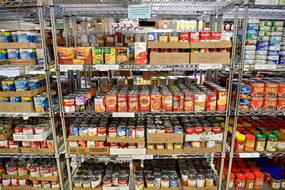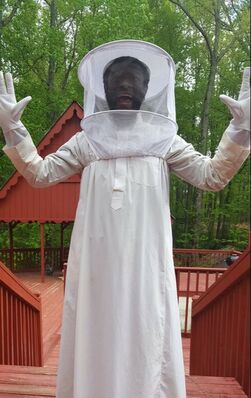 A food bank is a non-profit organization created for the purpose of collecting and distributing food for those who don’t have the means or it’s difficult for them to acquire it themselves. Some food banks run as “front line”, meaning they personally give food directly to the hungry. Other’s run as “warehouses”, collecting food then sending it out to smaller food banks, soup kitchens, and other front line organizations, mostly in other countries. The first food bank was St. Mary’s Food Bank, established in the USA in 1967. Over the past 50 years, thousands of food banks have been established across the country. Europe, which had little use for food banks due to they’re extensive welfare system, had food banks sprouting all over rapidly because of the global increase in the price of food in 2006, and even more especially after the financial crisis of 2007-08. With thousands of food banks around the world, there are many different models and operating systems. Since the global pandemic we are currently in this year 2020, with social distancing and sheltering in place, many people are in desperate need of food and personal care items. Here’s a few insha’Allah these will help ease the burden: *Masjids in the Greater Atlanta area: Madina Institution www.madinahfoodpantry.org 678-446-8737 461 West Crogan St Lawrenceville, GA 30046 ICNA Atlanta www.icnaatlantareliief.org 770-300-0067 6200 Memorial Dr. Stone Mountain, Ga Atlanta Masjid www.atlantamasjid.com 404-378-1600 I Have Enough Food Pantry Located inside the masjid at 560 Fayetteville Rd. S.E. Atlanta, GA. 30316 1-3pm 2x a month drive thru pick up only. Supreme Burger Is supplying frozen cooked meals for Seniors 60+ Monday 8am-3pm Email if interested secretary@ atlantamasjid.com *Food banks and pantries in Gwinnett County: Exodus Outreach, Inc. Location of center - 251 Bona Rd. Buford, Georgia 30518 Telephone number - (770) 945-9064 North Gwinnett Cooperative Ministry 70 Wiley Dr. Buford, Georgia 30518 Dial (770) 271-9793 for information and hours. Several social service and assistance programs are offered for the needy in the community. Counselors can direct people to programs to help pay bills, housing costs, and more. In addition, a food pantry and clothing closet is on site for free food, supplies such as diapers, and other aid. Duluth Cooperative Ministries - Hands of Christ Location - 3395 Fox St. Duluth, GA 30096 Call - (770) 623-9563 A bag of groceries may be passed out, or staff can help very low income residents apply for SNAP food stamps or other benefits. NEED HELP PAYING BILLS Now Faith Apostolic International Ministries Grayson, GA 30017 Dial - (770) 771-3512 Cafe Community Center at Cathedral De Fe Ministries, Inc. 675 Buford Dr. Ste. 21 Lawrenceville, Georgia 30046 Main number - (770) 236-8604 Meals and food is offered to the low income, homeless, and others. Lawrenceville Cooperative Ministry, Inc. Address: 176 Church St. Lawrenceville, GA 30046 Dial - (770) 339-7887 Another Gwinnett County Georgia ministry, similar services offered as the other non-profit agency listed above. New Life Fellowship, Inc. - Bread of Life Food Ministries 990 Martins Chapel Rd. Lawrenceville, GA 30045 (770) 513-1007 Meals, fresh perishable items, bread, and other free food and groceries offered. Gwinnett County Service Unit branch of Salvation Army Main office - 3455 SugarLoaf Pkwy. Lawrenceville, Georgia 30044 Telephone - (770) 724-1661 The local Salvation Army offers a wide range of assistance programs for the low income, unemployed, seniors, and needy. Some of the resources can help pay electric bills, rent, and medications. However most services provide items like access to a food pantry. Signs & Wonders, Inc. Location - 120 S. Perry St. Lawrenceville, GA 30046 Telephone - (770) 962-0470 Vision Academy Life Center 458 Chestnut St. Lawrenceville, GA 30045 Call - (678) 206-0688 St. Vincent de Paul of Gwinnett The church based group provides services in this county too. The low income, with a focus on families with children or senior citizens, can receive free food, perishable goods, and maybe even baby formula. Call (678) 892-6163 for hours. Lilburn Cooperative Ministry Address is 5329 Five Forks Trickum Rd. Lilburn, Georgia 30047 (770) 931-8333 A pantry has free food in a crisis. Other services will be formula, clothing and a low cost thrift shop for people in poverty. City of Hope and Community Outreach Ministry, Inc. Food bank location is 182 Hunter St. Norcross, GA 30071 Dial (770) 441-2948 for hours. Cafe Community Center Food pantry address is on Buford Drive in Lawrenceville Call the non-profit at (770) 236-8604 Resources administered include a free food pantry with non-perishable and perishable items such as fruits or vegetables. Norcross Cooperative Ministry Center address is - 2275 Mitchell Rd. Norcross, Georgia 30071 Dial - (770) 263-8268 A number of services are available. A food pantry will have bags of groceries in a crisis. Or contact the center for information on government aid such as SNAP food stamps. Place of Enlightenment, Inc. 2720 Centerville Hwy. Snellville, Georgia 30078 Phone number - (770) 982-8221. Dial the Main Client Number for hours and when food is distributed. Berean Christian Church Gwinnett 1465 Highpoint Rd. Snellville, GA 30078 678-240-2213 Free food boxes once a week drive thru on Friday starting at 1pm. Purpose World Church 1905 Highpoint Rd, Snellville, GA 30078 Food boxes every Wednesday 4:30-6:30 They also offer vegan food boxes and name brand natural personal hygiene products too. Your Local Farmers Market just Google your cities market to get great deals and double your purchases if using EBT/SNAP BENEFITS *ALL ORDERS ARE BEING MADE ONLINE* AMAZON You can also purchase items on Amazon using EBT/SNAP. https://www.amazon.com/snap-ebt/b?ie=UTF8&node=19097785011 ***also check out this YouTube channel that helps you figure out more ways to use your EBT/SNAP benefits www.lowincomerelief.com *Several other resources and food assistance programs operate in the Gwinnett County region. Examples of them include school meals and summer snacks for children, Meals on Wheels, and more. To get more information on local pantries or resources, dial (404) 892-9822. Kiesha and Ta-Seti JabriKiesha is a wife and mother of 7. She has been apart of the Atlanta Muslim Community for over 20yrs. And helped co- chair the Deen Media Center. Ta-Seti is a rising 10th grader, who is aspiring in the field of journalism. She has consecutively won the Gwinnett County libraries Reading program since 2016. Seti has also been a Girl Scout for 5 yrs at Al-Falah Academy.
3 Comments
 The journey of Tariq, the Muslim beekeeper began approximately three years ago. Tariq has always been a “nature boy” for as long as he could remember. As a young boy, he was the kid that stayed outdoors. His preference would be to ride bikes or play basketball than to play video games. But when friends were not around, he passed time collecting and building vivariums (enclosures, containers, or structures adapted or prepared for keeping animals under seminatural conditions for observation). Tariq first started off building terrariums for collecting and raising toads, lizards, and snakes that he would catch around the house. He then moved to aquariums where he raised various fish, crustaceans, amphibians, and turtles. It should come to no surprise that by his senior year of high school he was well positioned to go to college and major in zoology. However, due to his father cautioning him that a zoologist would not have a financially rewarding life and the school of his choice (Morehouse) didn’t have a zoology major, he chose to major in biology instead. Although he was on a pre-med track, he opted not to pursue medical school after college. Rather his secondary passion for social activism lead him to education. Tariq never strayed far from his nature loving side; in his classrooms he raised praying mantises. Shortly after starting a career as a high school teacher, he was back in the seat of the student obtaining a master’s degree in Science Education. After about 10 years as a teacher, he transitioned into Educational Leadership. Tariq currently acts as director, educator, and wellness therapist at Makkah International Institute. After founding Makkah International Institute and beginning to homestead he has now been afforded the opportunity to rekindle his childhood passion of exploring the natural world. Among other endeavors, Makkah International Institute takes regular expeditions to provide youth with real world, culturally relevant learning experiences. Among these expeditions, we have gone snorkeling, taken college tours, visited nature centers, and various farms including that of a Muslim beekeeper. It was at this trip to visit a Muslim beekeeper in 2014 that he was first introduced to beekeeping. The beekeeper saw the enthusiasm in the faces of the summer camp youth that he decided to invest in the organization by giving the organization a beginner’s beekeeping book. Tariq flipped through it, and three years later, as his homestead was steadily growing, he was ready to buy my first batch of honeybees which he purchased from another Muslim Beekeeper. The honeybees were one of the last animals to join his homestead: after the chickens, quail, and goats. After his first year of beekeeping he attended the Young Harris Beekeeping Institute and became a certified beekeeper. He is currently working on his third beehive, and plans to continue to advance in the art of beekeeping until he becomes a master beekeeper. Tariq aspires to add to the scientific research of bee related matters as well as experience being a honey judge. In addition to the personal fulfillment that beekeeping has given Tariq, children within the community have also benefitted tremendously from him being a beekeeper. Since honeybees are major pollinators, the children have gained a better interest in and understanding of agriculture and food production. Beyond honey, the children have also learned that humans collect many other useful products from bees such as wax, royal jelly, and pollen. We anticipate that we will soon have children expressing interest in going into the natural health field due to learning of the many health benefits of pollen and royal jelly. We already have children that want to make candles and cosmetic products from the wax! The youth have already gained experience in harvesting honey, this year Makkah International Institute is looking forward to producing candles and cosmetics as well! Unlike the keeping of other animals and critters, Tariq finds that beekeeping is highly connected to his religious fulfillment. The bee is mentioned in the Quran and the Prophet said that honey, black seed, and hijama are cures for all diseases and the best of all medicines. As an Islamic wellness therapist not only does Tariq perform hijama, but he also gives wellness advice on a regular basis. So quite naturally, he relays the many narrations of Prophet Muhammad that relate to wellness. If someone is sick, all too often Tariq will recommend that they take some honey. In fact, he even provides it after his hijama appointments. Which is local, fresh from the farm, and above the organic standard! After it is all said and done the number one question people ask is “how many times have you been stung”? Contrary to what most people believe, honeybees are relatively easy to manage. In his three years of beekeeping, he has only been stung about five times. Beekeeping maintenance mainly consists of opening the hive about twice a month to check the health and development of the colony. In my three years I have spent about $700 in beekeeping supplies and training. Which is about the same as a good pedigree German Shephard (without the training!). But unlike a pet dog, the honeybees find their own food. They will travel about a mile away to find the flowers they love. Makkah International Institute combines three essentials to community prosperity: service, education, and wellness. Central to our mission is the honeybee. With aw inspiring social structure and unmatched work ethic the honeybee is so central to our organization that it was chosen as our mascot. The Makkah Institute Killer Bees are steadily growing in popularity at many local basketball tournaments donning their Stealers (and honeybee) black and gold colors. Beyond summer camps and school curricula, Makkah International Institute uses beekeeping in a holistic manner to uplift our community. If anyone has any questions or need advice Tariq is always willing to lend a helping hand to the community. Till the next time, Happy Beekeeping! Tariq Abdul-Malik B.S, MAT, Ed.S, CHP Tariq Abdul-Malik is the founder and director of Makkah International Institute LLC, Makkah Institute Inc., and Makkah Farms. He is a passionate father of 9, husband, son, brother, educator, hijama practicitioner, and beekeeper. He is a staunch advocate for holistic wellness and education that balances mind, body, and spirit.  Based on what we know at this time, COVID-19 affects pregnant women no differently than non pregnant women. However, pregnant women in general are at a greater risk of getting sick from respiratory viruses than non pregnant women. Some babies have tested positive shortly after birth, but it is unknown whether the babies got the virus before, during, or after birth. There are few reports of newborns with severe illness; however, much is still unknown about the risk of COVID- 19 to newborns. We do not know if COVID-19 can be spread thru breast milk, but limited data available states that it is highly unlikely. So breastfeeding continues to be the best source of nutrition for all infants. On the day you deliver, if you are positive for COVID-19 or exhibiting symptoms you will be placed on isolation and more than likely separated from your baby at birth. Some hospitals will allow the infant to stay in your room but a 6 feet separation between mom and baby must be maintained. This is for the good of the child. Most hospitals will allow only one support person in the delivery room, and they will not allow that person to swap out with another. If you’re pregnant you should take the following precautions:
Lisa Connor APRN, MS, CNM, LCCELisa Connor earned her Masters of Science in Midwifery from SUNY Downstate in Brooklyn, NY in 2000 launching a career in home and hospital births as a full time CNM. Lisa offers a calm reassuring presence that is a blessing to birthing families while her expertise provides a safe and holistic approach to pregnancy and women’s health.  On May 19th, the CDC released guidelines for school attendance during the COVID-19 pandemic. The CDC outlined three possible scenarios and included the risks of each situation. The three scenarios included: Lowest Risk: Students and teachers engage in virtual-only classes, activities, and events. More Risk: Small, in-person classes, activities, and events. Groups of students stay together and with the same teacher throughout/across school days, and groups do not mix. Students remain at least 6 feet apart and do not share objects (e.g., hybrid virtual and in-person class structures or staggered/rotated scheduling to accommodate smaller class sizes). Highest Risk: Full-sized, in-person classes, activities, and events. Students are not spaced apart, share classroom materials or supplies, and mix between classes and activities. By late June, three schools had rolled out their fall school opening plans giving parents a choice between digital, in-person, and a hybrid model. The proposal came after both parent and staff surveys, but the announcements shocked many. The last few months took parents through the burden of homeschooling, cancelation of graduations, and the worry of keeping their children safe during a pandemic. Now parents must decide how their child would learn for the next school year with very little information as to how it will look. As we walk into this great unknown, what can we do to be prepared and ensure our children have the best school experience possible? (https://www.cdc.gov/coronavirus/2019-ncov/community/schools-childcare/schools.html) When schools closed in March, there wasn't a single parent ready for the burden of digital learning. We scrambled to keep up with assignments and understand what in the world it all meant. The parents struggled, the students struggled, and we all felt like we had fallen down the rabbit hole, hoping to return home soon. As summer approached, it felt like we were free, and our "normal" would return. We celebrated the start of summer with all the hopes school in the fall would be the same as we left it, but we approach the start of school this fall it looks like we will have to accept a new "normal." That "normal" included parents having to decide how their children will receive their education for the next school year and the reality that the pandemic is still present. At the end of June, three counties had announced their plans for reopening. These plans included Hybrid, in-person or digital options. Ready or not, our students will return no later than August 17th. With this realization, parents want to know how schools plan to keep our students and their staff safe. The state of Georgia does not require masks, but some school districts are strongly recommending it along with six feet of distance when possible. Decisions about restrictions during this pandemic change monthly, so there are still many unknowns. Districts have not given specific and definite guidelines on recess, PE, assemblies, Parent nights, etc. where crowds and distancing will be difficult. So how do we ensure our children will be safe. As a parent of elementary and a high school student and also an elementary teacher, I know that it will be hard to keep the little ones masked and apart from each other all day. It is important to make sure we implore our children to keep their safety in mind. Make sure they have personal cleansing and disinfecting materials, and keep in mind they need to stay distant from their friends when possible. Schools are not allowing sharing of materials, but children need to make sure they are not sharing personal materials like they may be used to. Just as we prepare our children for safety in any environment, we now have to prepare them to stay safe in school. Now that we have heard what the return of school may look like, how can we, as parents, ensure that our children are safe, and their educational needs are met? With information coming from every which way and changing weekly, we as parents will be our children's most important advocates. Schools will be working diligently to create environments that follow state guidelines while keeping student's academic needs in mind. Whether your child is attending a hybrid, in person, or digital format, it will be starkly different from what they have been used to. One possible concern with face to face or hybrid instruction might be the possibility of the necessary safety precautions posing an emotional an/or academic risk to a successful school year. In preparation for this possible concern, it is important to be aware of any and all safety measures your school will be implementing. Making your child is aware ahead of time can reduce any possible anxiety or fear. Knowing the school's safety measures will also help parents to feel empowered and in the know. It is important as an advocate to know what your child's academic needs are and how they will be met. It is ok to ask as many questions as you need to understand and support your child. These questions may help you understand…
Khadijah AbdullahI am am a wife mother of four and an elementary education teacher for Cobb County schools. I have spent the last four years advocating for children who have experienced adverse effects of trauma. I am a teacher trainer and curriculum developer striving to create curriculum for teachers and schools to better address students who are underserved. I am also the creative director of MACE (Muslim Advocated of Children with Exceptionalities), a group that strives to open avenues for special needs children and their families. |
Don't miss another edition of A Message from Makkah. Click the button below to join our mailing list
Contact Us for Advertising Opportunities!
Archives
January 2023
Categories
All
Our Sponsors |
Makkah International Institute
 RSS Feed
RSS Feed